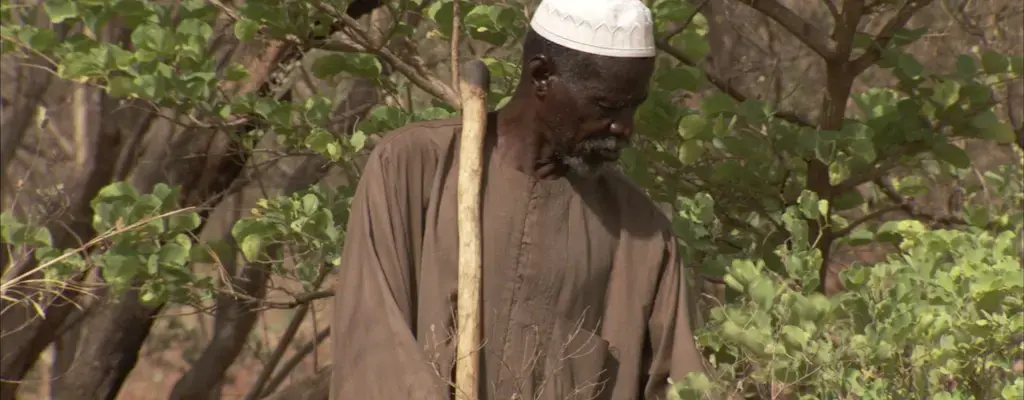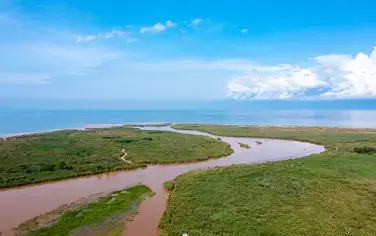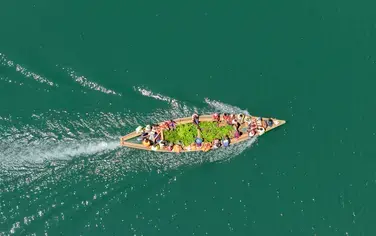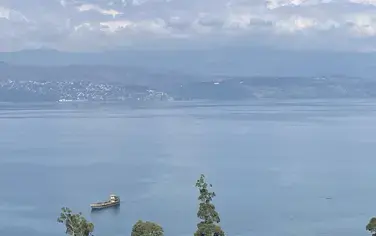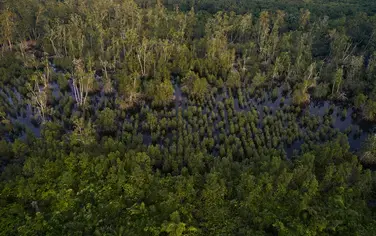This piece originally appeared on the website of the Right Livelihood Award here.
The farmer Yacouba Sawadogo from Burkina Faso is known as “the man who stopped the desert”. Today, he has been announced Laureate of the 2018 Right Livelihood Award, widely known as the ‘Alternative Nobel Prize’.
Yacouba Sawadogo is recognised by the jury “for turning barren land into forest and demonstrating how farmers can regenerate their soil with innovative use of indigenous and local knowledge.”
The announcement was made at the International Press Centre at the Swedish Ministry for Foreign Affairs by Ole von Uexkull, Executive Director of the Right Livelihood Award Foundation, and Amelie von Zweigbergk, board and jury member of the Foundation. Upon receiving the news, Sawadogo commented: “I am very honoured to receive the Right Livelihood Award, which will allow me to persist in my efforts to protect the forest and the wildlife. I hope that the legitimacy provided by this prize will help inspire and encourage many others to
regenerate their land for the benefit of nature, local communities and future generations.”
Starting around 1980 during a phase of severe drought, Sawadogo has successfully created an almost 40-hectare forest on formerly barren and abandoned land. Today, it has more than 60 species of trees and bushes and is arguably one of the most diverse forests planted and managed by a farmer in the Sahel.
Sawadogo’s remarkable success builds on experimenting with traditional planting pits for soil, water and biomass retention (“zaï” in local language). He has continued innovating the technique over the years, increasing crop yields and successfully planting trees. Despite facing resistance from locals in the beginning – Sawadogo was called a “madman” and saw his forest set on fire – he never considered giving up. Over time, people came to admire his work. Sawadogo has always been eager to share his knowledge, and has received thousands of visitors from the region and beyond. By organising trainings, he has empowered farmers to regenerate their land. As a result, tens of thousands of hectares of severely degraded land have been restored to productivity in Burkina Faso and Niger.
Ole von Uexkull commented: “Yacouba Sawadogo vowed to stop the desert – and he made it. If local communities and international experts are ready to learn from his wisdom, it will be possible to regenerate large areas of degraded land, decrease forced migration and build peace in the Sahel.”
Those who adopt Sawadogo’s techniques often become food secure, as zaï help to conserve rainwater and improve soil fertility. This allows farmers to produce crops even in years of drought. Trees planted together with the crops serve to enrich the soil, produce fodder for livestock and
create business opportunities like bee keeping. This helps farmers adapt to climate change, reduce rural poverty and prevent local resource and water related conflicts.
The other two cash awards go to the following Laureates:
- Civil and human rights defenders Abdullah al-Hamid, Mohammad Fahad al-Qahtani and Waleed Abu al-Khair (Saudi Arabia), who share an Award.
- Agronomist Tony Rinaudo (Australia)
The 2018 Honorary Award goes to anti-corruption champions Thelma Aldana (Guatemala) & Iván Velásquez (Colombia).
The prize money will be used to support the Laureates’ successful work and is not for personal use.
The Award Presentation will take place in Stockholm on 23 November, followed by public events and high-level meetings in Geneva, Zurich and Berlin.
